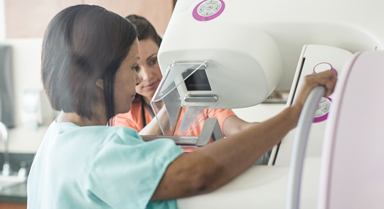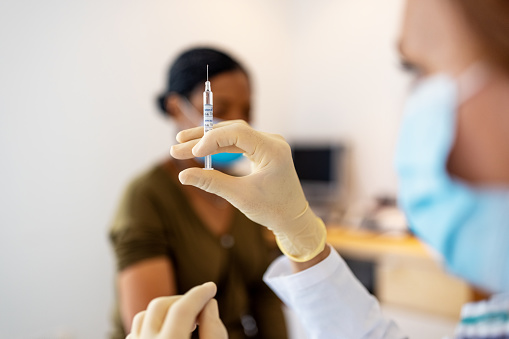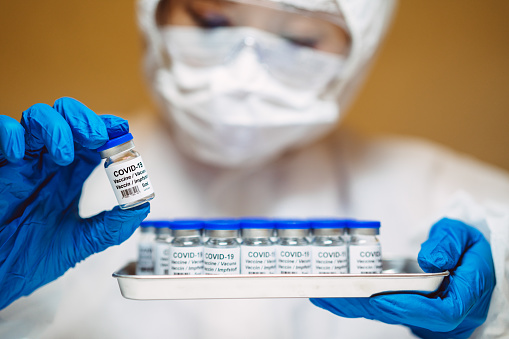Men’s cancer facts
- Prostate cancer is the second most common type of cancer in men worldwide, with 1.4 million new cases reported in 20202
- Around one in eight men will be diagnosed with prostate cancer3
- There are two main types of testicular cancer: germ cell tumors and stromal tumors; germ cell tumors account for about 95% of all testicular cancer cases4
Risk factors for prostate cancer
There is no conclusive evidence regarding the causes of prostate cancer. However, those with a higher risk of developing prostate cancer include men who:
- Are over the age of 505
- Are obese5
- Have a family history of the illness5
Detecting prostate cancer
Prostate cancer usually develops slowly, so there may be no signs for many years.5 Generally symptoms don’t appear until the enlarged prostate affects bodily functions.5 Symptoms may include:
- Constant feeling of needing to urinate1
- Straining while urinating1
- Blood in semen1
- Feeling of never fully emptying your bladder1
However, some symptoms can be caused by an enlarging of the prostate and not cancer.3
Biopsies, blood tests, MRI scans, ultrasounds, bone scan, PET scan and physical exams can be used to test for prostate cancer.5 If you are a man over 40, consult a health care provider about your possible risk for developing prostate cancer and any testing you should consider.
Symptoms of testicular cancer
The most common symptoms of testicular cancer include:
- A lump or swelling in the scrotum that may or may not be painful
- A heavy feeling in the scrotum
- A dull pain or feeling of pressure in the lower belly or groin6
Detecting testicular cancer
Most men find testicular cancer themselves by chance or during a self-exam. Or a provider may find it during a routine physical exam.
Because other problems can cause symptoms like those of testicular cancer, a provider may order tests to find out if there is another problem. These tests may include blood tests and imaging tests of the testicles such as an ultrasound or a computed tomography (CT) scan.6
If you have questions about any type of cancer contact your health care provider for advice and support.
1. Movember, Men’s Health, https://us.movember.com/mens-health/general, Accessed July 6, 2022
2. World Cancer Research Fund International. Prostate cancer statistics. https://www.wcrf.org/dietandcancer/cancer-trends/prostate-cancer-statistics, Accessed June 24, 2022.
3. American Cancer Society. Key Statistics for Prostate Cancer. https://www.cancer.org/cancer/prostate-cancer/about/key-statistics.html, Revised January 12, 2022.
4. Movember, Nuts & Bolts, https://nutsandbolts.movember.com/articles/types-of-testicular-cancer/, Accessed July 6, 2022
5. Mayo Clinic. Prostate cancer. Symptoms and causes. https://www.mayoclinic.org/diseases-conditions/prostate-cancer/symptoms-causes/syc-20353087, Accessed June 24, 2022.
6. Cigna, Testicular Cancer, https://www.cigna.com/knowledge-center/hw/medical-topics/testicular-cancer-zr1001, Accessed July 6, 2022.
This information is for educational purposes only and is not medical advice. Always consult with your health care provider for appropriate examinations, treatment, testing and care recommendations.
Products and services are subject to availability and may not be available in all jurisdictions and are expressly excluded where prohibited by applicable law. Terms and conditions may apply. In the U.S., Cigna Global Health Benefits® group medical and dental plans are insured or administered by Cigna Health and Life Insurance Company. In the U.S. and Canada, group life, accident and disability plans are insured or administered by Life Insurance Company of North America. In Canada, group medical, dental, vision, and evacuation plans are insured or administered by Cigna Life Insurance Company of Canada. Employee Assistance Programs are administered by or through Evernorth Care Solutions, Inc., and Evernorth Behavioral Health, Inc. or affiliates and contracted companies. In other jurisdictions, products and services are offered by or through Cigna Global Insurance Company Ltd. or affiliates and contracted companies. Products and services may not be available in all jurisdictions and are expressly excluded where prohibited by applicable law. The information on this site is only a general description of benefits. All insurance policies and group benefit plans contain exclusions and limitations. Please consult your licensed agent or contact Cigna for product availability, costs, and complete details of coverage. The Cigna name, logo, and other Cigna marks are owned by Cigna Intellectual Property, Inc.








































































































